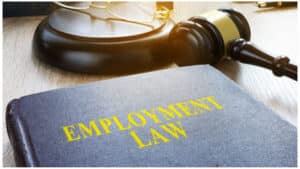
This week’s question comes from Alicia M. from Berkeley, who asks:
Q: “I have several friends in the City that work as Uber drivers. I recently saw that the California Labor Commissioner said that a Uber driver was an ’employee’ and not an ‘independent contractor’. Does this mean that my friends who work for Uber will be eligible for overtime and mileage reimbursements?”
Alicia, you are correct that the California Labor Commissioner recently ruled that one Uber driver, Ms. Barbara Ann Berwick, was an “employee” under the law, and was therefore, entitled to mileage reimbursements, interest and penalties under the California Labor Code. This, however, does not mean that Uber has to immediately treat all of its drivers – including your friends – like “employees”. Decisions of the Labor Commissioner are not binding and only apply to the person making the claim for unpaid wages – here, Ms. Berwick. Also keep in mind that Uber has appealed the Labor Commissioner’s decision to the San Francisco Superior Court. So until the Superior Court and other courts throughout the state begin to agree with the Labor Commissioner, Uber will likely not treat its drivers like “employees”.
Uber, of course, has much financial incentive to keep its drivers classified as “independent contractors”. In fact, their entire business model depends on it. If the company is forced to follow the law and classify tens of thousands of drivers as employees, they will have to pay drivers overtime, provide meal and rest breaks, reimburse them for mileage and provide worker’s compensation for any injuries on the job, among other benefits. This will substantially hurt Uber’s profits, and the company will undoubtedly spare no dollar on legal fees to fight this issue rather than treat its drivers lawfully.
In answering the question of whether Uber drivers are “employees” under the law, the key issue that the Courts will have to look at is whether Uber has sufficient control over its drivers. If the Courts apply this control test like the Labor Commissioner, then they will affirm the Labor Commissioner’s finding that drivers are employees like with taxi companies. What the Labor Commissioner found was most convincing was that despite Uber holding themselves out as a neutral technological platform, the reality was that they were involved in every aspect of the operation: they vet drivers, who must provide banking and residence information; they control the tools the drivers use; drivers’ cars must be registered with Uber; the cars can’t be more than 10 years old; and drivers must maintain a customer rating level of 4.6 out of 5 stars of face deactivation. In addition, Uber’s “intellectual property” – the app – can only be used by approved drivers. In sum, the drivers’ work was integral to Uber’s business of providing transportation services to passengers. Without the drivers, Uber’s business would not exist.
While recent developments suggest that the “sharing economy” may finally have to face labor laws, Uber is likely not going to be concerned with the lawful treatment of its drivers any time soon. In fact, Uber’s self-proclaimed future would get rid of drivers altogether. Earlier this year, Uber launched the Uber Advanced Technologies Center in Pittsburgh to conduct research and development in creating driver-less cars.
Last year, Uber’s chief executive, Travis Kalanick, was quoted as saying “the reason Uber could be expensive is because you’re not just paying for the car – you’re paying for the other dude in the car.” Clearly, Mr. Kalanick’s intention is to get rid of the “dudes in cars”, not to pay them the wages they are owed. Hopefully, in the meantime, however, like the Labor Commissioner, California Courts can “disrupt” Uber’s systematic attack on the state’s labor laws.










